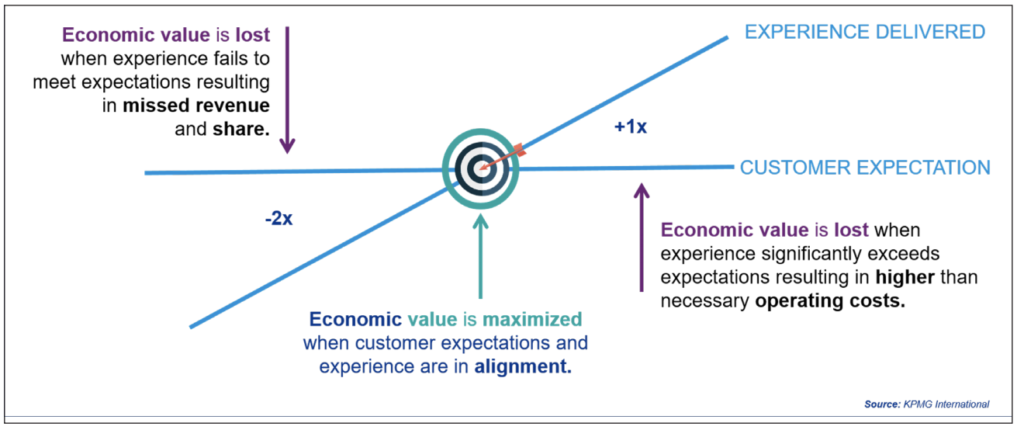I talk with a lot of companies who want to up their game in delivering a better customer experience. Yet, I’m always struck by the impediments companies always put in front of themselves that negatively affect that experience. “We can’t do that because…” is always the first part of a long set of internal issues that we just can’t seem to overcome. I most often hear “We can’t do that because our business is so complicated.” Another common version of this is “We can’t do that because our technology stinks.”
I tend to think that “We can’t do that because…” really means “We don’t want to do that because it’s too much effort to fix the real issue.” There’s no doubt that many efforts to improve customer experiences is very difficult and is a lot of effort. But isn’t the value of achieving the desired experience worth it?
Economic Value of Customer Experiences
Given the inability to square the effort to the economic value of creating a great experience, I did some research. I found a recent paper by Julio Henandez titled “Customer experience in the new reality”. The author talks about the impact that the COVID-19 Pandemic has had on customer behavior, expectations, decision making, and buying behavior.
Mr. Hernandez provides a lot of information about his take on how customers are adjusting to the new “reality” of managing the virus. I won’t go into all the data, but one chart, in particular, struck me on the economic value of customer experience relative to customer expectations.
The chart argues three main points:
- Economic value to our company is lost when an experience doesn’t meet customer expectations. That’s shown on the left side of the chart. This sounds like common sense, and I think most people would agree with this point.
- On the right side of the chart, the point is made that economic value to our company is lost when the experience significantly exceeds expectations. The idea that you spend too much on the experience and don’t get a commensurate return in value.
- In the middle, the argument is that economic value is maximum when experience meets customer expectations.
After reviewing this, I immediately took offense to the idea that economic value is lost when experience exceeds expectations. Maybe the “significantly” qualifier eases my offense a bit, but I’m not sure. Likewise, to argue that value is maximized when expectations and experience are aligned is short-sighted, in my opinion.
Exceeding Expectations to Rule the World
Hopefully, you can think of examples of when an experience exceeded (significantly!) your expectations. I think back to the first appearance of Uber. Clearly, the experience of getting a ride to the airport was significantly better than my experiences with cab rides. The economic value of creating this significantly better experience went to Uber in a big way.
I think the only way to think about customer experience is to try to exceed your customer’s expectations. As pointed out in many other studies, companies with better customer experiences do better in the market. Just meeting expectations is no way to rule the world.

